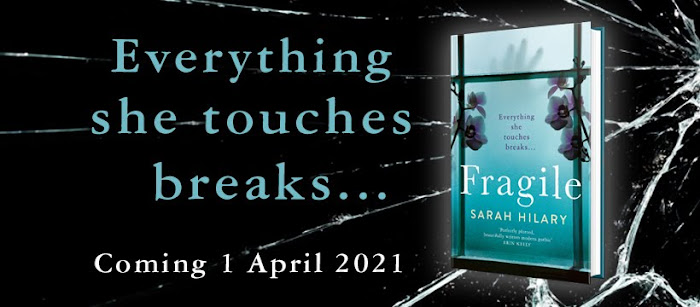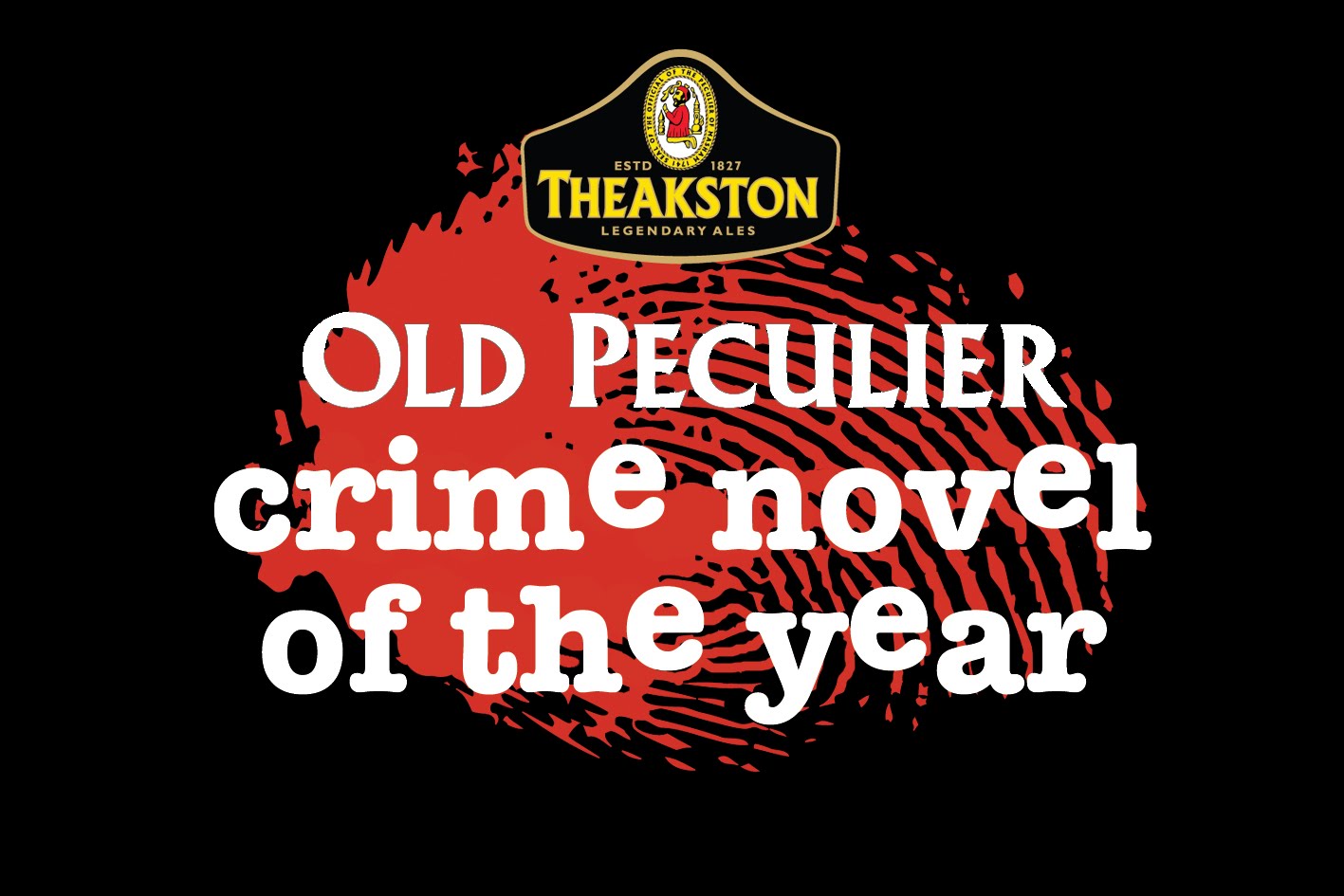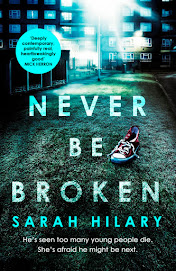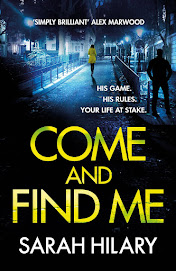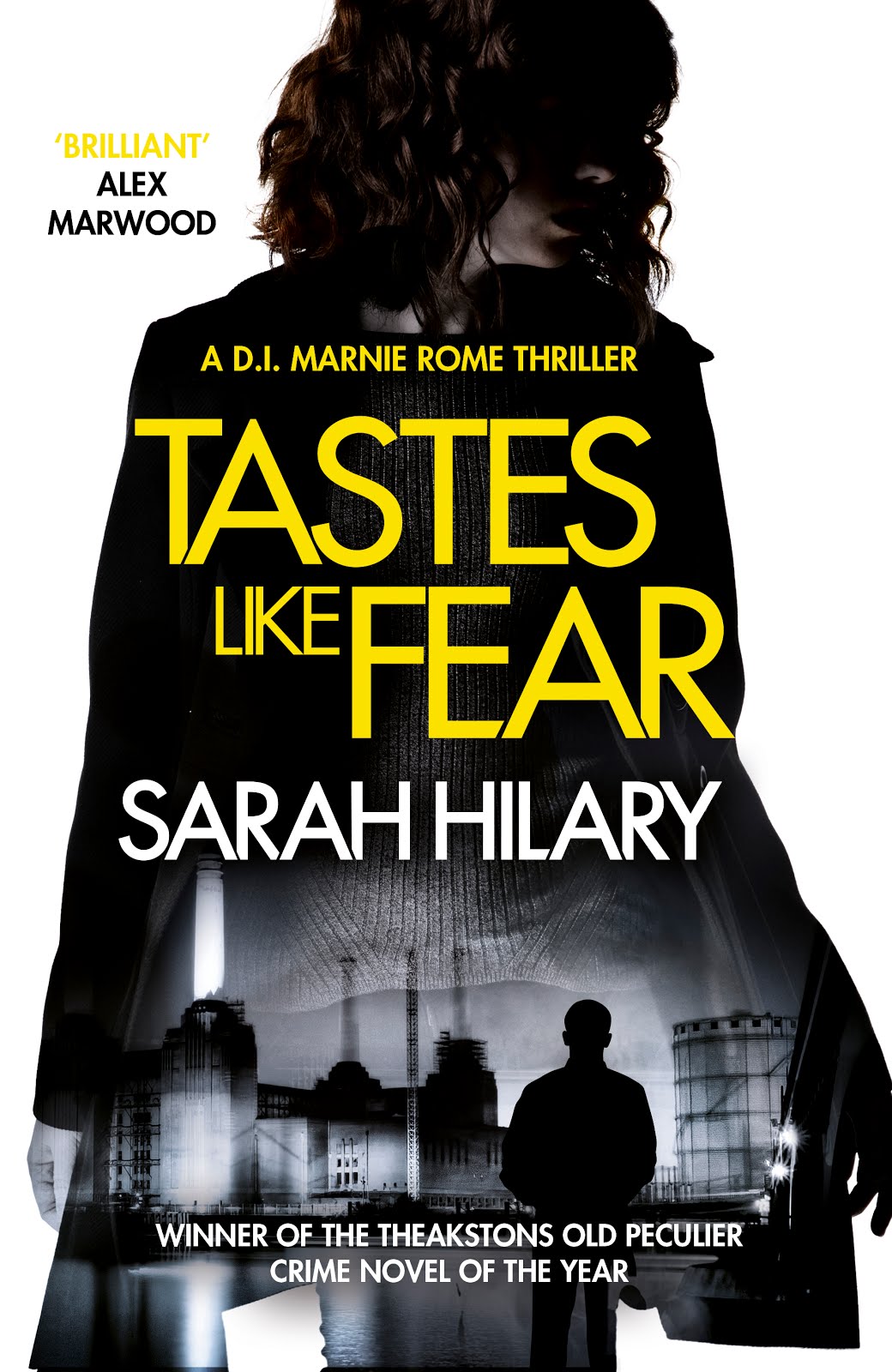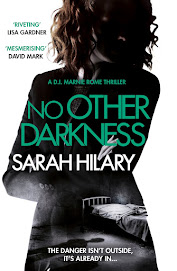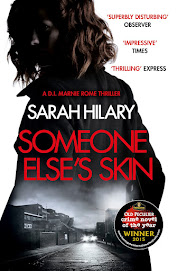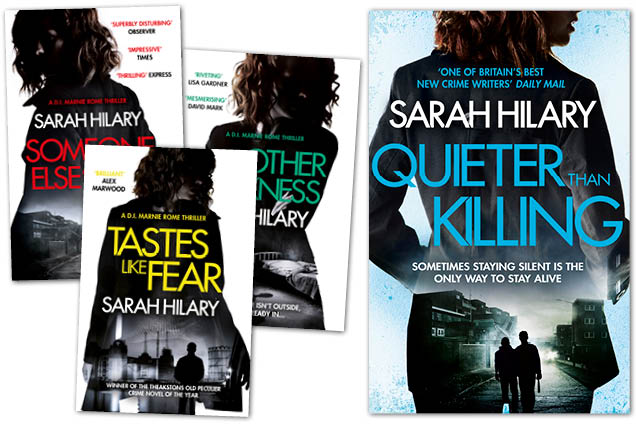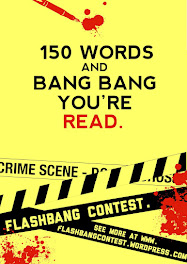There was a time, and not that long ago, when I hadn't read any of Mick Herron's books. When I was a stranger to the allure of Slough House and its many denizens, yes, even to Jackson Lamb himself. Happily, I rectified that enormous gap in my thriller reading and am even now devouring Mick's latest, Spook Street, which is out on 9 February. Not only is this series up there with my all-time favourites, but it's solved my Christmas shopping in a single fell swoop; everyone I know is getting Slow Horses, Dead Lions and/or Real Tigers in their stocking this year. Welcome to Crawl Space, Mick.
 MH: I should know the answer to this, as I’ve just started writing a new book – almost literally, I mean; the day before yesterday – but it’s strange how much of the process remains impenetrable even while I’m in the middle of it. What was I thinking on Saturday morning, when I put the book I was reading (The Punch – Noah Hawley) to one side, turned my laptop on, opened a new file and began to write? I couldn’t say. I just knew it was time to begin. I’d been putting it off for days.
MH: I should know the answer to this, as I’ve just started writing a new book – almost literally, I mean; the day before yesterday – but it’s strange how much of the process remains impenetrable even while I’m in the middle of it. What was I thinking on Saturday morning, when I put the book I was reading (The Punch – Noah Hawley) to one side, turned my laptop on, opened a new file and began to write? I couldn’t say. I just knew it was time to begin. I’d been putting it off for days.
Except, of course, I’d already begun. When I claim to have started last Saturday, what I really mean is, that’s when I started writing page one. I already had half a notebook full of half-formed thoughts. And I already had a folder on my laptop – called, as all my new book folders are, “New book”, because I have a superstitious dread of writing down a novel’s title until it’s finished – and it already held nine files. The oldest of these (“Quotes”, created 9 January), contains snatches of dialogue and short bursts of prose which either never found their way into SPOOK STREET, or have occurred to me since. The next oldest, thrillingly enough, is called “Plan”, and sounds like it should contain an outline of the book, though what it mostly does is ramble haphazardly through a number of contradictory ideas transcribed from my notebook, which it then laughably tries to break down into a plot structure. It does include some useful guidance (“Make this bit funny”), but on the whole, you’d get more sense out of the scribblings on a serial killer’s wall. And the other files contain scenes, or half-scenes, or scrambled conversations between characters, some of which will end up in the book and some of which won’t.
And all of this rather scrappy preparation is a way of ensuring that when I do start, I’m not entirely looking at a blank screen. For example, the file called “Intro” contained a list of the words I thought I’d need when writing the opening two pages: these include [spoiler alert] “sunglasses”, “chickens – blood/feathers” and “stone”. And on Saturday/Sunday, I duly converted that list into 989 words of continuous prose.
SH: I’m now entertaining thoughts of Jackson Lamb running amok in a chicken coop wearing a pair of battered Ray-bans ... Does he whisper in your ear when you’re writing? I’m guessing you hear voices, like the rest of us. Which one is loudest, or do you have them all under control?
MH: An entertaining thought indeed – thanks for that. Lamb bellows rather than whispers, I’d say. But he’s the only one whose voice I hear; the only one who can surprise me. I’m not going to get mystical about this: Jackson Lamb doesn’t exist, and the words ascribed to him in the books are my work, not his. But I often find that lines of dialogue that he’ll end up saying pop into my mind without warning, when I’m not actually writing. This might just be my own inner bastard trying to get free. There must be a huge liberty in not caring what other people think about you: it’s Lamb’s genuine unconcern that allows him to be a monster. Most of us filter our opinions. Otherwise we’d not hold down jobs.
The others don’t make their voices heard in the same way, but as the books go on, I find I’ve enough of a handle on each of them to drop into their tone of voice without much difficulty. It never takes me long to find Catherine’s pitch, for instance. She’s also the one I’ve the strongest visual image of. But one of the pleasures of writing about a large cast is adopting different points of view, and I get a kick out of that.
As for control, no character ever really takes over. But what can happen, especially in a series, is that keeping faith with the way a particular character has been established forces changes of direction. I’ve deleted lines in the past, or had to rethink a particular scene, when I realise that River Cartwright, say, wouldn’t speak the line, or perform the action, that I’d originally had in mind.
Having said all that, I had the uninvited image not long ago, while working on a non-Slough House book, of Jackson storming into a room wearing only a pair of boxer shorts and wielding a bottle of bleach. The why and how and where of it, I don’t know. But it’ll be a shame if it doesn’t happen.
SH: I’m very interested in what you say about tone of voice and finding a character’s pitch. Catherine is one of my favourites; you write her so well. I can’t resist asking how you get on with writing your female characters. I find it far easier writing Noah Jake or Tim Welland than I do writing Marnie Rome. Everyone’s always very surprised by that, but it makes perfect sense to me (ego vs. id). You’re writing all kinds of wonderful women, too, from your malevolent fire hydrant with the coke habit to the deliciously devious Lady Di. How easily do they spring to life? Do they need more, or less. coaxing than the male cast?
 MH: Male novelists are praised for writing female characters more often than females are for writing males, aren’t they? But that’s par for the course. Most of those who’ve been acclaimed Queens of Crime – from Christie and Sayers to James and Rendell – wrote about male detectives for the most part, and I don’t recall this being remarked on much. But then, such choices were a reflection of the times in which they began their writing careers, when female police officers of a rank to be heading up murder investigations were rare, if not non-existent. So who else were they going to write about – women detectives? The male voice was the default setting.
MH: Male novelists are praised for writing female characters more often than females are for writing males, aren’t they? But that’s par for the course. Most of those who’ve been acclaimed Queens of Crime – from Christie and Sayers to James and Rendell – wrote about male detectives for the most part, and I don’t recall this being remarked on much. But then, such choices were a reflection of the times in which they began their writing careers, when female police officers of a rank to be heading up murder investigations were rare, if not non-existent. So who else were they going to write about – women detectives? The male voice was the default setting.
But I digress, as the columnists say. My earlier novels had female protagonists, and I used to explain this by saying that it kept me on my toes as a writer. If I’m writing a male character, I don’t have to look too hard for a male response to a given situation, because such responses come ready-made; if I’m writing from a female viewpoint – and I always take my characters’ viewpoint, even though I don’t use the first person – I have to try harder, think more, write better. But I don’t know any more if that’s actually true. I like to inhabit all my characters’ minds, and I find Catherine’s the most interesting. Her alcoholism gives me something to hang onto every time I take up her story. I admire the quiet strength it takes to battle her demons: she’s not making a huge fuss, she just gets on with life, and rarely allows anyone to know the struggles she contends with. But it’s true, too, that she’s one of the only characters I’ve written whose origins lie in other people, so it’s possible there are levels of empathy there that I’m not able to access with the others. But the truth is, I don’t know.
With the males, it’s mostly frustrated pride they’re battling against – or, in Roddy Ho’s case, complete lack of self-awareness – so maybe I’m short-changing them as far as their inner lives go. In SPOOK STREET, though, a character turns up from an earlier novel, NOBODY WALKS. He’s suffering PTSD, and has deeper issues to cope with than some of the others, so I found writing his story quite absorbing. Damaged characters give the novelist more licence, as you’re well aware. You can take them places you’ve never been yourself, and wouldn’t want to go.
SH: I think sometimes you can ruin a character by digging too deeply into their character, either on the page or in interviews like this one. It’s one of the reasons I don’t have too many details about Marnie’s past or her taste in music etcetera; I want her to be a surprising voice in my head rather than a deliberate construct. And I write to find out the details and truth about characters. Curiosity is what drives me as a writer, and a reader. If it’s all there on the page (or in a notebook somewhere) I get bored. So I think your not knowing is perhaps why characters like Catherine are so very good.
There’s a certain character in your Slow Horses series with a blond fringe and a bicycle whom you describe as a ’public buffoon and private velociraptor’. Do you approach these sorts of characters differently to others? Part of the joy for the reader comes from recognition, but I imagine you’re walking a careful line between fact and fiction?
 MH: As a writer, I entirely agree. I’ve held off delving into Lamb’s back story, for instance, because I don’t want to reduce him to an equation: that happened to him, therefore he’s now this. That’s not to say I won’t examine his origins at some point – the occasional blurry image presents itself, one of which I inserted into REAL TIGERS – but I’m aware of the risks that might involve, and besides, it’s his current self that most interests me. He’s not a bastard with a heart of gold, I’m quite sure of that. But he is a bastard with a moral code, however obscure it might be, and I enjoy discovering what sort of situations might trigger him into action.
MH: As a writer, I entirely agree. I’ve held off delving into Lamb’s back story, for instance, because I don’t want to reduce him to an equation: that happened to him, therefore he’s now this. That’s not to say I won’t examine his origins at some point – the occasional blurry image presents itself, one of which I inserted into REAL TIGERS – but I’m aware of the risks that might involve, and besides, it’s his current self that most interests me. He’s not a bastard with a heart of gold, I’m quite sure of that. But he is a bastard with a moral code, however obscure it might be, and I enjoy discovering what sort of situations might trigger him into action.
And as a reader, I take enormous pleasure in seeing a character develop over a series of novels, especially when they arise from murky circumstances. What happened to Marnie Rome, for example, clearly colours what’s going to happen to her; the unanswered questions in her past cast shadows over her future, and the fact that you’re – at least in part – discovering the narrative arc at the same time as writing it must contribute to the suspense the series generates. The same is true of Harry Bingham’s Fiona Griffiths, who stands alongside Marnie as one of the most interesting and complicated protagonists in current UK crime fiction; a character who’s investigating her own past as well as current crimes. Her back story slowly comes to light in the course of – so far – five novels, and it’s a fascinating process.
 When characters have their origins in real-world counterparts – which most often happens in satirical novels, I guess – the colour they’re shaded ultimately depends on the attitude their author has towards them. If he or she regards a particular politician, say, as a harmless idiot, then the fictional version will no doubt reflect that. But if he or she thinks a prominent public figure is in fact a self-serving, ethically challenged sociopath, well, that’ll probably come across in the writing too.
When characters have their origins in real-world counterparts – which most often happens in satirical novels, I guess – the colour they’re shaded ultimately depends on the attitude their author has towards them. If he or she regards a particular politician, say, as a harmless idiot, then the fictional version will no doubt reflect that. But if he or she thinks a prominent public figure is in fact a self-serving, ethically challenged sociopath, well, that’ll probably come across in the writing too.
As for my “public buffoon” – you’re not seriously suggesting that anyone in public life remotely resembles this monstrous caricature?
SH: Good heavens, no. Can you imagine if there were actually monsters like that at large in the world ..? Can you talk a little about your new standalone novel? Or is it classified?
MH: Not classified, but difficult to talk about, because it’s structured in such a fashion that any detailed discussion will involve spoilers … But as my publisher kindly informed me: “You’re going to have to find a way.” So here goes. It’s called THIS IS WHAT HAPPENED. (titular punctuation: it’s the next big thing) and involves the recruitment of a young woman, Maggie Barnes, as an intelligence service asset. She works in a lowly position for a financial services company in London, a company that’s apparently a cover for a foreign power intent on disrupting the national economy, or even national sovereignty. She’s tasked with planting a bug in their internal communications system, a relatively simple job which goes horribly wrong. That, anyway, is the starting point. The plot undergoes some changes of direction.
It was written in a short, intense burst, and I hope will be read the same way.
SH: I love your heroines; really looking forward to reading this one. Thanks for sharing Catherine Standish and Jackson Lamb and co with Crawl Space. It’s been a genuine pleasure.
MH: For me too, Sarah. Thank you so much.
 An Evening with Mick Herron is being hosted at Waterstones in Bath on 26 October. Tickets are free but you should reserve a place.
An Evening with Mick Herron is being hosted at Waterstones in Bath on 26 October. Tickets are free but you should reserve a place.
Mick's website is here, where he writes about being a commuter, chasing after Smiley, and why one of his ex-spooks is called River.
